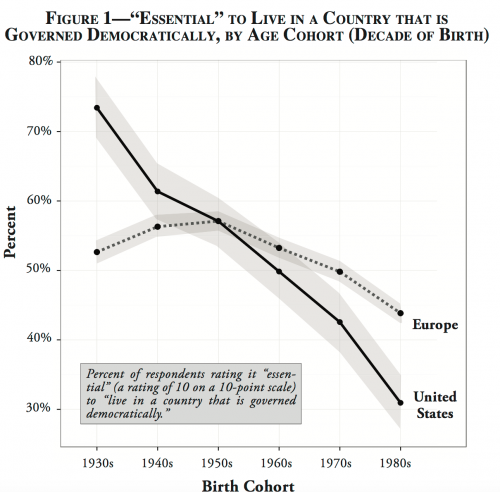Culture? Language? Genetics?
Alison Gopnik, writing in the WSJ, discusses an interesting experiment on problem solving in very young children which was run by two researchers at UC San Diego, following on to research in which Gopnik was herself involved. Children of various ages were shown a machine that lights up when you put a block of a certain color or shape on it. “Even toddlers can easily figure out that a green block makes the machine go while a blue block doesn’t.”
The researchers wondered: what if the test was of the relationship between objects..say, two square blocks of the same color made the machine light up, but not two blocks of different colors?
For American children, 18-month-old children had no trouble figuring out that the relationship between the objects was the key thing. But older American children, 3-year-olds, did worse at the relationship test than did their younger counterparts. For Chinese children, however, the fall-off in relationship-assessing performance between 18 months and 3 years old did not happen.
Here’s a reasonably decent summary of the paper’s main points, and here’s the paper itself.
Why the fall-off for American kids? (A temporary fall-off, it seems…the researchers say that the American kids recover their relationship-assessing skills between the ages of 4-6 years.) One hypothesis is language….possibly the “noun spurt” that is said to characterize early-English learning has something to do with it. Or perhaps there are broader cultural factors: “In particular, there are well-documented differ- ences in holistic and analytic processing (and relatedly, collectivist and individualist cognitive styles) across cultures, which may simi- larly result in an emphasis on relationships between entities or on characteristics of individual entities. More broadly, environmental variation across these learning contexts (e.g., socioeconomic status, number of siblings, and pedagogical and child- rearing practices) may differentially affect general cognitive skills that are known to influence relational reasoning, like executive function.” (quoted from the paper)
Or, perhaps, could there be a genetic explanation?…Would children of Chinese ancestry, raised in the US in English-speaking homes, show more often the Chinese pattern or the American pattern in these experiments? While a genetic explanation seems unlikely to me, I would think it should at least be considered.
Most likely, to me, seems the language explanation. The Sapir-Whorf hypothesis, which has also been dubbed ‘linguistic relativity’, holds that the language we speak has a major impact on how we perceive the world…it fell into some disrepute after WWII because of its appropriation by the Nazis to make claims of cultural superiority and also because of some apparent errors in Whorf’s reporting, concerning for example the Inuit words for ‘snow’…it does make sense, however, that language has a significant impact on what thoughts can be most easily expressed and hence on what thoughts are most likely to be conceived.
